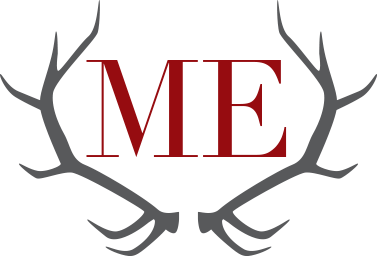
This is not a complete list. This list is not in order.
1. The Picture of Dorian Gray. If you’ve never read Oscar Wilde, prepare yourself for a wild few days of laughing, crying, sighing, and dying. He’s in my top three* most talented writers in the English language. This book is about the way we treat beautiful people and what it says about us. Wilde’s command of language is sublime. He has no equal, although I try to channel him when I’m tipsy.
2. Lolita. This book is controversial and many people cannot or will not read it because of their views on the subject matter or their own trauma. I cannot defend the story of a man molesting his stepdaughter and I’m not trying to here. I love this book wickedly, perfectly, and intensely because Nabokov approaches English as a third or fourth language and masters in it a way most native speakers will never understand. It is not a true story. It is the expression of genius, channeled through a taboo.
3. American Gods. This is Gaiman’s best work outside the realm of graphic novels, where that title goes to The Sandman. (Many readers/intellectuals/academics/friends of mine won’t read graphic novels. Their unutterable loss.) American Gods is one of the most richly told and intricately woven fantasy novels of all time, and every time I reread it, I spot more mythology and beauty in it. It is a sprawling work of astonishing wit and whimsy.
4. The Fifth Sacred Thing. if you aren’t Pagan or strongly Pagan-friendly, you probably won’t like or understand this book. Even if you are, it may not be for you. This is a post-apocalypse tale of an ecologically sound and absolutely equitable society facing war. It isn’t great literature, but it hits all my buttons.
5. The Grapes of Wrath. Quite possibly the best American novel so far. A harrowing story about poverty and disaster and the way we cope with these things in a capitalist society. The device Steinbeck uses to switch between prose and narrative is something I’ve always admired but only just begun to understand.
6. The Prince of Tides. A masterpiece of literature and an amazing story. Conroy pollutes my writing; if I’ve read him recently I can’t help but sound like him. He writes about the isolation and silence and extreme weirdness of a lot of American households, the worship of nature in a sensual and visceral way, and addresses individual inadequacy with an unblinking vulnerability. Forgive him his Nazis, he wrote before it was passé.
7. Gone With the Wind. I have a hard time confessing my love of this book to people, even the ones I know well. I don’t like romances. I don’t like books about war. I generally dislike books that neglect to address the glaring social issue in the story (slavery, for example). However, the characterizations in this book are so complete, so excellent, so engaging that I’ve loved it for a decade or more. It may be the book I’ve read the most times. I often judge people in real life against the characters in this story.
8. The Handmaid’s Tale. I’m going to go out on a limb and call Atwood a writer of sci-fi/fantasy/genre fiction. She’s also brilliant and literary and avoids the label because it cheapens her work… to people who don’t understand the value of science fiction. Atwood uses a dystopian future to explore the disadvantages of women in nearly every society where our sexuality is viewed as so dangerous that it must be controlled at all costs. This book is incredibly powerful and inspiring to me, particularly the passages that deal with the way generations pass one another in understanding and acceptance of the Way Things Are.
This is typically the point in a book list that the reader/pontificating ass sucker-punches you with something pretentious (Ulysses) or something awful but well-loved (Atlas Shrugged). You’re safe. Read on.
9. The Absolutely True Diary of a Part-Time Indian. This is technically YA, and I could have just as easily recommended anything at all by Sherman Alexie, who is a treasure. I have a penchant for art born of poverty, which often brings with it an ethnic viewpoint not my own. When Alexie talks about growing up as a poor Ind’in, I feel the same way I did when Tupac talked about growing a poor black kid: I see how my life was different from theirs, but it never occurred to me that what they wrote was for someone else. This book is full of painful things, funny things, and true things. He is a genius storyteller.
10. Dandelion Wine. This is another one where I might have mentioned almost anything by Bradbury. Another unqualified genius, Bradbury is a world-builder extraordinaire. This is the first book I remember that gave me the sensation of having to come up for air.
Tomorrow, I’m going to visit a friend who’s teaching in Berkeley. I’m bringing him The Prince of Tides and The Great Santini. I chose them because they’re wonderful books, but also because he is an English teacher and a sports writer and he thinks that means he won’t write his own stories. I can’t wait for him to meet Pat Conroy.
These are suggestions. The list may change tomorrow or at any time. I’m starting a new book in the morning and I may have to change this list to include it. There are already obvious glaring omissions and I’ll probably show you another ten. But this is a good place to start.
*William Shakespeare, Oscar Wilde, Neil Gaiman.

